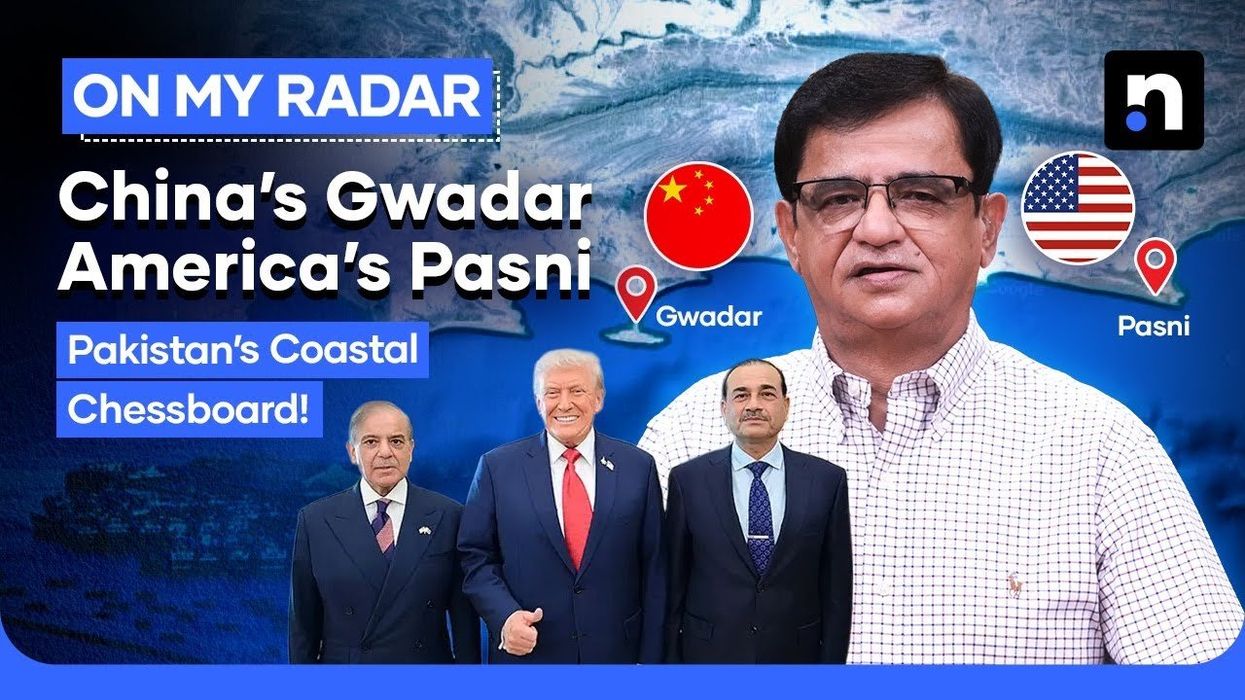China’s Gwadar, America’s Pasni? Pakistan weighs new maritime balance
Kamran Khan reflects that the proposed Pasni port may boost Pakistan’s mineral trade but test its diplomacy
News Desk
The News Desk provides timely and factual coverage of national and international events, with an emphasis on accuracy and clarity.
Kamran Khan has raised a compelling question: Is Pakistan preparing to develop a new seaport in Pasni, Balochistan, with American partnership — mirroring China’s deep involvement in Gwadar?
Khan, in his latest vlog, said growing chatter in strategic circles suggests Pakistan could soon host two active ports in Balochistan — the Chinese-managed Gwadar and a potential U.S.-linked Pasni — provided both remain focused on trade rather than military use.
For months, he noted, speculation has swirled around a new geo-economic opening along Pakistan’s southwestern coast. While the United States has remained publicly silent, Islamabad too has avoided any formal policy statement. Security sources, Khan said, have offered “partial confirmations and partial denials,” leaving observers guessing.
On Saturday, the Financial Times reported that Pakistan has offered the U.S. a partnership to build and operate a commercial seaport and terminal in Pasni. The proposal, according to the report, would give Washington logistical access to Pakistan’s rare earth elements and mineral exports.
Khan said informed sources claim Barrick Gold — the Canadian mining giant developing Pakistan’s massive Reko Diq copper and gold project — had already told Islamabad it would not use the Gwadar port to ship raw materials. That left Karachi as the only viable but distant export route.
“This is the backdrop,” Kamran Khan said, “that makes the Financial Times story on Pasni globally significant.”
According to the British daily, the proposed Pasni port carries an estimated cost of $1.2 billion. It would be connected by a new railway line linking Reko Diq’s mineral output — including copper, gold, antimony, and other rare earths critical to electric vehicles and missile technology — directly to the coast.
The FT also linked the development to recent meetings between Prime Minister Shehbaz Sharif, Field Marshal Syed Asim Munir, and U.S. President Donald Trump at the White House. Two of Munir’s civilian advisers were reportedly in initial talks with American officials about the proposed port, though Pakistani security officials have denied that Munir has any official advisers.
Security sources, however, did not dismiss the idea of informal discussions between private U.S. business entities and Pakistani stakeholders. “Pakistan,” Khan quoted them as saying, “evaluates such partnerships purely through the lens of national interest.”
Some analysts, he added, view the development as a “trial balloon” to gauge international and domestic reactions. Pasni’s location underscores its importance — roughly 500 miles from Afghanistan, just 100 miles from Iran, and only 70 miles from China’s Gwadar port, a linchpin of the China-Pakistan Economic Corridor.
Adding to the intrigue, President Trump recently expressed a desire to reestablish a U.S. presence at Afghanistan’s Bagram Air Base and simultaneously shut India’s access to Iran’s Chabahar port, where New Delhi had invested heavily. Analysts see this as a strategic realignment by Washington — potentially at India’s expense.
Against this backdrop, Kamran Khan said, the prospect of U.S. involvement in Balochistan’s mineral economy carries both economic promise and geopolitical risks. Pakistan’s rare earth reserves, along with copper and gold deposits in Balochistan and oil potential in Khyber Pakhtunkhwa, have already drawn U.S. commercial interest.
In a positive turn, Khan highlighted, Washington recently designated the Balochistan Liberation Army (BLA) as a terrorist organization — a move widely seen as supportive of Pakistan’s counterterrorism efforts. Following that, intelligence-based operations in the province have intensified, aided by satellite and drone surveillance.
Khan revealed that Pakistan has already dispatched its first batch of rare earth exports — worth $500 million — to the U.S. in partnership with American firm U.S. Strategic Metals, which signed an MoU with Pakistan’s military engineering division in September. The shipment, reportedly two tons, came soon after China imposed new export curbs on rare earths following Trump’s tariffs.
“As always,” Khan reflected, “such strategic developments trigger both optimism and anxiety.” Critics warn that a U.S.-linked Pasni port could sow distrust in Beijing and Tehran — Pakistan’s close allies — and allow Washington to reestablish a physical presence in a sensitive region.
Supporters, however, see it as an opportunity for Pakistan to balance its relations with both superpowers. “If Pasni remains a commercial partnership,” Kamran Khan said, “it could unlock major economic opportunities for Pakistan. But if it turns into a new geopolitical chess piece, it could just as easily become a flashpoint.”











Comments
See what people are discussing